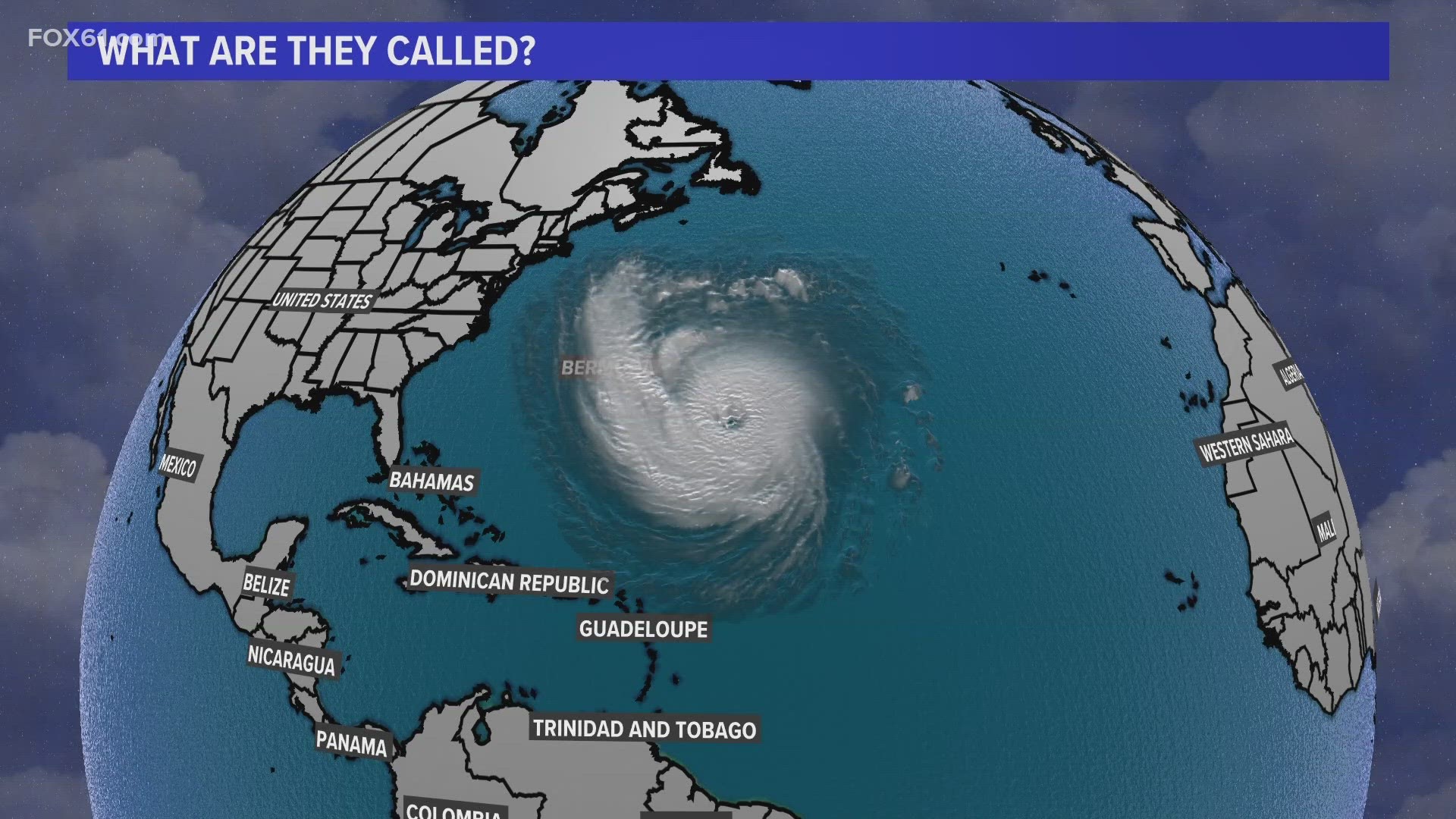CONNECTICUT, USA — First off, any tropical system can be called a tropical cyclone. That’s the general, overarching term for a warm-core low-pressure system with a swirling, closed circulation.
But what makes it a hurricane? It comes down to wind speed. In the United States – once the winds in a tropical storm hit 74 miles per hour – it gets the upgrade.
What’s the difference between a hurricane, typhoon, and cyclone? There actually is no difference in how they form or strengthen!
The only difference is the location where the storm is occurring.
A tropical cyclone with winds of at least 74 mph over the North Atlantic or northeast Pacific, the oceans surrounding the United States, is called a hurricane.
Once west of the International date line, into the northwest Pacific near Asia, the same type of storm is called a typhoon. This region accounts for almost one-third of the world’s tropical activity each year.
In the Indian Ocean and Southern Hemisphere, it’s a little easier to follow. It’s just called a cyclone!
Why the difference?
It comes down to regional dialect; long before this global society we live in today, these storms existed and were named regionally.
Interestingly, off the southwest coast of Africa, hurricanes were called a "willy willy" for a time, though that name is no longer used regularly.
There is one meteorological difference between the two hemispheres, however. Remember, in the Northern Hemisphere, low-pressure systems including hurricanes spin counter-clockwise, while in the Southern Hemisphere, the winds blow clockwise around any storm. This is because of the Coriolis effect, which sets up the complex global wind patterns that drive our weather and storms.
All tropical cyclones require the same ingredients for development, no matter where they are on the planet: A tropical wave or disturbance, warm water, thunderstorms, and low wind shear, otherwise the storm will get torn apart.
---
Have a story idea or something on your mind you want to share? We want to hear from you! Email us at newstips@fox61.com
----
HERE ARE MORE WAYS TO GET FOX61 NEWS
Download the FOX61 News APP
iTunes: Click here to download
Google Play: Click here to download
Stream Live on ROKU: Add the channel from the ROKU store or by searching FOX61.
Steam Live on FIRE TV: Search ‘FOX61’ and click ‘Get’ to download.

